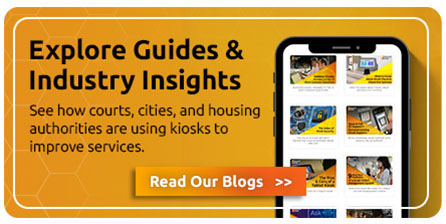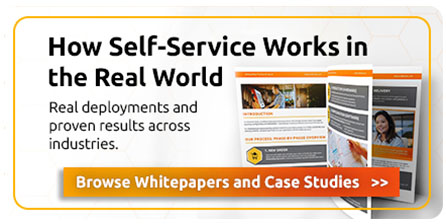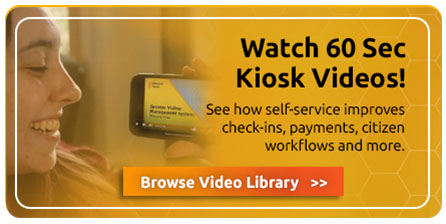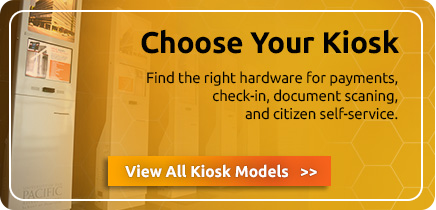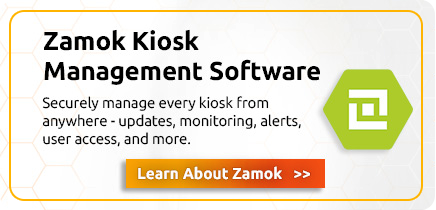The Revolution: A Paper-Free Future
One year ago, Maine’s Office for Family Independence(OFI) created its Eligibility Management Future State Program (EMFSP). EMFSP was tasked with revolutionizing the way Maine residents apply for and receive need-based benefits like food supplements, cash and medical assistance.
Like most states, Maine has seen demand for these types of assistance skyrocket while DHHS staffing levels have remained stagnant.
Automating the process became critical, and now that it is technologically feasible, a cutting-edge, paperless system is also desirable for the number of efficiencies it offers, from cost and time savings to improved service to decreased environmental impact.
Jeanne Garza is EMFSP’s program manager. She identified three elements necessary for OFI to achieve a more efficient eligibility determination system:
- An internet portal that allows clients to apply for and manage their benefits online from any physical location. My Maine Connection is OFI’s eligibility portal, and as of Fall 2013, it will be able to accept clients’ updates to their case files as well as deliver electronic notices from DHHS to them – no stamp required.
- A statewide call center equipped to handle any and all client inquiries.
- A document imaging and indexing system to electronically transport and store all the forms and supporting documentation previously found in countless musty, old file folders. This makes data accessible to any case worker anywhere in the state.
Going paperless is a great idea in theory, but humans are creatures of habit. “We wanted to expand the use of the automated system so clients could be in control of updating their own personal info and benefits,” Garza explains. “We also needed a way to handle walk-in traffic that promoted a self-service model.” OFI has an average of 22,000 walk-in visits per month statewide. Steering those people to the eligibility portal was crucial.
The Search: For an All-In-One Kiosk Solution
When trying to determine how best to handle walk-in traffic, Garza looked to other states for solutions. Florida has storefronts where people can come in and use computers to access the state’s self-service portal. These offices are staffed only by a helpdesk person who can answer questions about how to navigate the portal and troubleshoot any technical difficulties that may arise. A few other states offer only document scanning capabilities on site.
Garza reported, “Several of our counterparts across the country had automated parts of the application process, but there was no one tool that enabled clients to do it all – from completing applications to uploading supporting documentation to follow-up phone interviews.” She decided to invent just such an all-in-one system that could serve as a national model for Health and Human Services departments across the country. The federal government showed its support for this innovative initiative by awarding Garza a USDA Supplemental Nutrition Assistance Program (SNAP) Process & Technology Improvement Grant. This nationally competitive grant program prioritizes projects that improve applicants’ ability to access SNAP benefits. OFI was one of only 11 applicants to receive funding in the 2012 fiscal year.
EMFSP released a Request for Proposals in March 2013. “We were very specific about what we wanted. We didn’t want run-of-the-mill kiosks with segmented functionality,” says Garza. “We wanted an all-in-one tool, and we wanted it in a tight timeframe.” Thirty-five companies issued requests for the RFP. However, given its high degree of specificity and programming complexity, Garza was not surprised when she received only four proposals, but she was determined to get the project exactly right.
“These kiosks tie into every aspect of my program: the My Maine Connection portal with electronic noticing, the statewide call center, and document imaging. They are absolutely integral to everything we are trying to accomplish.”
“We chose Advanced Kiosks because they had a very clear and detailed proposal we felt would meet our needs,” Garza explains. “[President] Howard Horn and his team understood that, first and foremost, the kiosks’ hardware and software both needed to be easy to use. User privacy and security of personal data were also top priorities.”
Configuring the Kiosks
To meet Maine’s specifications, Advanced Kiosks chose its Document Kiosk equipped with a full-size scanner. The scanner allows clients to submit birth certificates, pay stubs, W-2s and any other supporting documentation needed for their application. The kiosk’s software interface provides users with step-by-step instructions on how to operate the scanner, but the scanner itself also features sticker illustrations to walk people through the scanning process.
Users can choose to enter their information via the kiosk’s industrial, 19″ touch-screen monitor or its sealed metal keyboard with 2″ metal trackball. Either way, these kiosks are designed to comply with the Americans with Disabilities Act and handle years of heavy public use.
Advanced Kiosks added several innovative options to the base unit to meet OFI’s needs. Voice over Internet Protocol (VoIP) handsets connect to a drop-down menu on the touch screen giving users three call center choices: (1) Eligibility Assistance (connects to OFI staff who can conduct application interviews or answer policy questions),
(2) Kiosk Attendant (technical issue, needs paper, etc.), and (3) My Maine Connection Questions (connects to OFI’s Help Desk for navigation questions). Once the user selects an option, the call is placed automatically, no dialing required.
The kiosk touch screens have privacy filters that are invisible to the eye but ensure that only the person standing directly in front of the screen can see its content. Anyone else standing in line or around the kiosk sees a darkened screen. The filters are a must-have for OFI clients’ sensitive personal and financial data.
Full-size laser printers allow users to print confirmations that their applications have been received, benefit determinations, and electronic notices. Here again, Advanced Kiosks’ attention to detail is apparent with a security measure that hides the print window when the user issues a print command. This ensures any unauthorized person cannot make changes to the printer configuration.
Finally, the kiosks have also been outfitted with credit card readers. OFI has not activated these yet, but they will one day allow people to swipe their MaineCare (Medicaid) and Electronic Benefit Transfer cards, enter their PIN numbers, and then get coverage and balance information.
All this hardware operates in perfect harmony thanks to Zamok, Advanced Kiosk’s new cloud-based, self-service management software. At its most basic level, Zamok is a security system that prevents any and all unauthorized access and use of the computer kiosks, but it is so much more. Zamok allows Advanced Kiosk engineers as well as OFI and Maine’s Office of Information Technology staff to remotely push out system updates and reconfigure settings whenever necessary. Additionally, Zamok’s cloud solution enables OFI staff to check-in remotely with each kiosk. They can view usage statistics for individual machines and make sure each unit is online and functioning properly. In the event of a power interruption, Zamok also ensures the kiosk’s computer reboots into a secure environment, reestablishing the
Like all Advanced Kiosks self-service kiosks, Maine’s units also have a complete software package that includes Windows 7 Professional, OneFinger Touch Screen Keyboard, TeamViewer, which allows Advanced Kiosks to provide remote support and administration, and the proprietary energy- and money-saving GreenTimer hibernation software.
Two additional standard software add-ons are invisible to the user, but ensure the stability of every Advanced Kiosks product. UnCrashable constantly monitors the user interface and quickly restarts the program if it ever locks up or crashes. It also sends an email notification to all administrators letting them know an error occurred. If the customer interface becomes unstable or locks up more than three times within a three-hour period, UnCrashable reboots the kiosk. ReDo-Restore is the ultimate failsafe. In case of catastrophe, it will reinstall a kiosk’s operating system, drivers, Zamok and the set-up configuration in less than 20 minutes to return the unit to its original factory settings.
All 58 of Maine’s kiosks were configured, installed and operational less than 60 days after OFI awarded the contract. The kiosks were divided among the 16 DHHS district offices based on the amount of foot traffic in each.
Even with an order of this size, setup was a breeze because every turnkey kiosk is shipped fully assembled. OFI staff simply unpackaged the kiosks, put the printers in, rolled them to their designated locations, and plugged them in. Prior to shipping, Advanced Kiosks’ engineers preconfigured Zamok with all necessary DHHS and OFI settings so that it could take over operation from there.
Kiosk Integration & Training
Maine’s story is similar to state and local governments all across the United States. OFI is just one of hundreds of state agencies that depend on Maine’s overworked and understaffed Office of Information Technology (OIT). So for this flagship project, Garza decided to have Advanced Kiosks service and maintain the kiosks in their entirety. OIT only provides the Internet connection. “It’s been an adjustment for us – redirecting staff to contact Advanced Kiosks rather than OIT for this portion of our business technology needs,” Garza admits.
However, Advanced Kiosks did have to work closely with OIT to assure the kiosks’ seamless operation within Maine’s network and the DHHS application system. OFI required all scanned documents to be indexed by some basic identifying information, so Advanced Kiosks modified the Zamok scanning solution to have the interface ask users a series of questions before the scanner can be activated. Once a document is scanned, the kiosk software uploads it to the state document control system with all identifying case information clearly flagged so it can be properly located within the database.
In the unlikely event the electronic document cannot be moved from the kiosk, the scan is encrypted to protect the user’s privacy in case of unauthorized system access. The kiosk then continues its attempts to send the scan in the background until it is successfully uploaded or deleted after seven days.
Advanced Kiosks and Garza’s staff provided training for each regional office, but the portion of each session dedicated to kiosk operation was minimal. “These machines were designed to be so user friendly that OFI staff really didn’t need to be trained on them,” explains Garza. “We just showed them how to change the paper, how to find the serial number and how to allow Advanced Kiosks to remote into a computer to troubleshoot when necessary. Really, the bulk of the training was on how to guide clients through the My Maine Connection portal and answer frequently asked questions.”
Partnering for the Future
Just a few months into a four-year contract, OFI is very pleased with Advanced Kiosks’ product and reliability. “They’ve been incredibly responsive” Garza raves. “They always welcome our calls and walk us through any trouble. All OFI staff, statewide, have been instructed to contact Advanced Kiosks directly for quick resolution to any and all issues. We don’t have to burden our state OIT staff to keep these kiosks up and running and accessible to the people who need them.”
For all customer service, Advanced Kiosks has a case system in which every call is logged, and after the phone call, an email is sent out summarizing the call. Advanced Kiosks also provides OFI with a weekly report summarizing any and all work done to each kiosk. Garza attests, “Advanced Kiosks has been great at communicating and keeping everyone informed.”
The regional offices have enthusiastically embraced this new way of doing business. The Lewiston office reported 80 clients using the kiosks in a single day! In fact, Lewiston’s adoption rate has been so high, the office has already been able to reassign one staff member from intake (assisting walk-in clients) to vetting My Maine Connection transactions.
In July, the first full month of kiosk operation, 1,600 people used the kiosks to register for DHHS services. That represents about 16% of the total number of applications OFI receives in any given month.
Garza points out that the new system does not necessarily mean less work for staff; it just means they can devote their time to more high-level tasks like eligibility determination and policy oversight. She estimates staffers save about an hour of time in data entry for every application filed via self-service kiosk. “They are certainly helping to make our workload more manageable,” she says.
Given the great reception, Garza is optimistic about Maine expanding its use of kiosks both within the Department of Health and Human Services and beyond. The first and most natural crossover may well be to the Department of Labor, which is co-located with DHHS in several of its district offices. Garza points out, “Self-service kiosks empower our citizens to be in control of their own information.”
Download Government Case Study.

